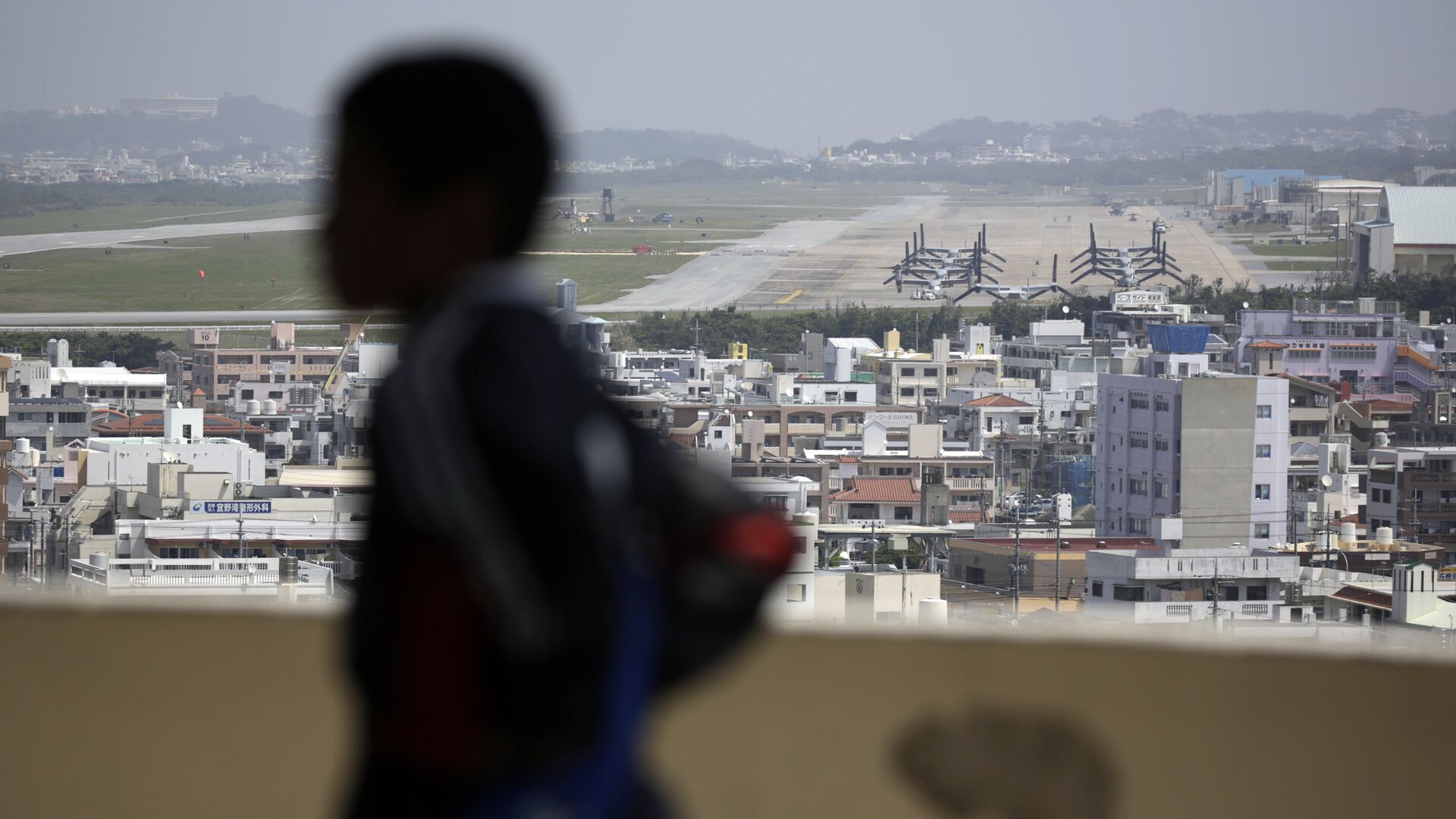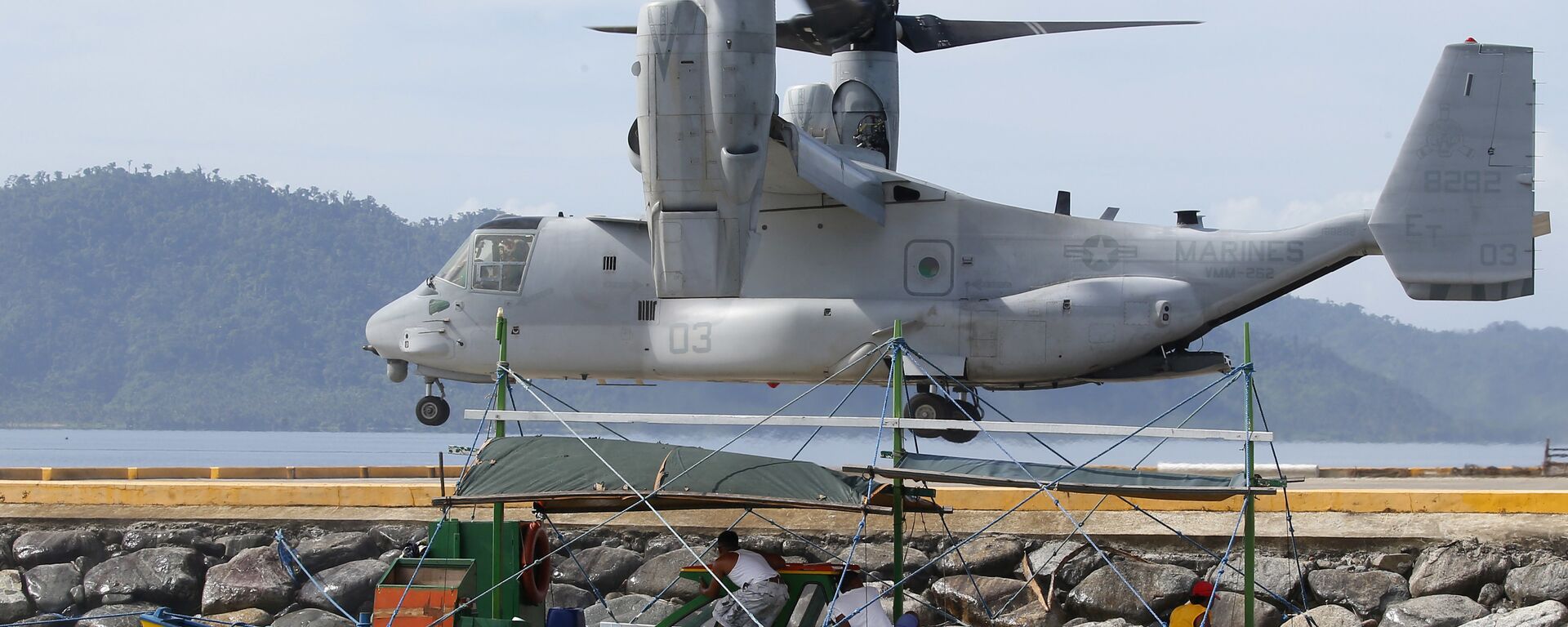https://sputnikglobe.com/20240623/us-military-bases-and-rapid-defense-deployment-worry-okinawa-residents-1119074012.html
US Military Bases and Rapid Defense Deployment Worry Okinawa Residents
US Military Bases and Rapid Defense Deployment Worry Okinawa Residents
Sputnik International
Residents of Okinawa, Japan’s southernmost prefecture, are anxious about US military presence, incidents involving personnel and the rapid deployment of self-defense forces, said Prefecture Governor Denny Tamaki in his speech at a memorial ceremony commemorating the end of the Battle of Okinawa.
2024-06-23T09:49+0000
2024-06-23T09:49+0000
2024-06-23T09:50+0000
asia
okinawa
us
japan
us bases
https://cdn1.img.sputnikglobe.com/img/105276/15/1052761531_0:140:3000:1828_1920x0_80_0_0_1a30480dd18448c860fd11068dcea551.jpg
Okinawans are still opposed to US military bases in the Japanese island province almost 80 years since it was invaded in WWII, the governor has said."The presence of massive American bases, incidents and accidents involving American military personnel, environmental issues due to the American bases, and the excessive burden on Okinawa from the American bases continue today," the governor added.Prime Minister Fumio Kishida and the heads of both houses of the Japanese parliament spoke at the ceremony. Although Kishida acknowledged the burden on Okinawa, where about 70 percent of US bases are concentrated, his speech was interrupted by shouts of protest.The Battle of Okinawa, from March 26 to June 23, 1945, was one of the bloodiest for Japan in World War II. Around 200,000 people were killed, half of whom were civilians — one in four of the population.US troops have remained on the islands since the battle. There have been numerous incidents of personnel from bases committing crimes against local people, including rape and murder, and escaping trial and punishment.
https://sputnikglobe.com/20240328/japans-okinawa-prefecture-assembly-lodges-protest-over-osprey-flight-resumption---reports-1117603745.html
okinawa
japan
Sputnik International
feedback@sputniknews.com
+74956456601
MIA „Rossiya Segodnya“
2024
Sputnik International
feedback@sputniknews.com
+74956456601
MIA „Rossiya Segodnya“
News
en_EN
Sputnik International
feedback@sputniknews.com
+74956456601
MIA „Rossiya Segodnya“
Sputnik International
feedback@sputniknews.com
+74956456601
MIA „Rossiya Segodnya“
residents of okinawa, us military bases, us military presence
residents of okinawa, us military bases, us military presence
US Military Bases and Rapid Defense Deployment Worry Okinawa Residents
09:49 GMT 23.06.2024 (Updated: 09:50 GMT 23.06.2024) Residents of Okinawa, Japan’s southernmost prefecture, are anxious about US military presence, incidents involving personnel and the rapid deployment of self-defense forces, said Prefecture Governor Denny Tamaki in his speech at a memorial ceremony commemorating the end of the Battle of Okinawa.
Okinawans are still opposed to
US military bases in the Japanese island province almost 80 years since it was invaded in WWII, the governor has said.
“It has been 79 years since that war," Denny Tamaki said. "How do our ancestors now view this world and Okinawa?"
"The presence of massive American bases, incidents and accidents involving American military personnel, environmental issues due to the American bases, and the excessive burden on Okinawa from the American bases continue today," the governor added.
"The rapid deployment of self-defense forces on Okinawa is now progressing swiftly. All of this overlays our memory of the Battle of Okinawa and causes great concern among the population,” Tamaki stressed.
Prime Minister Fumio Kishida and the heads of both houses of the Japanese parliament spoke at the ceremony.
Although Kishida acknowledged the burden on Okinawa, where about 70 percent of US bases are concentrated, his speech was interrupted by shouts of protest.
The Battle of Okinawa, from March 26 to June 23, 1945, was one of the bloodiest for Japan in World War II. Around 200,000 people were killed, half of whom were civilians — one in four of the population.
US troops have remained on the islands since the battle. There have been numerous incidents of personnel from bases committing crimes against local people, including rape and murder, and escaping trial and punishment.



